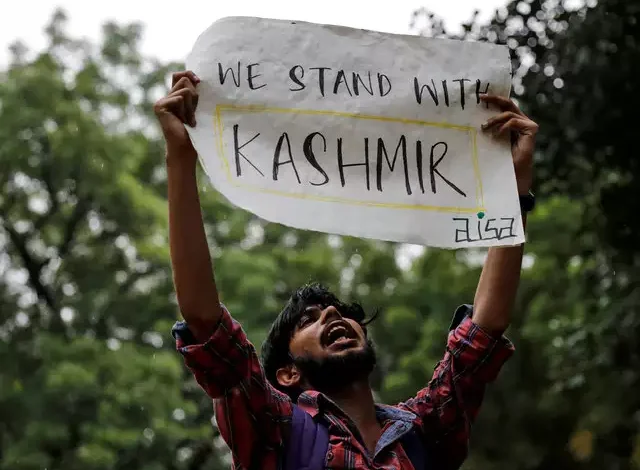Supreme Court rejects comparison between Article 370 scrapping and Brexit-like referendum
The remark by the five-judge bench headed by Chief Justice DY Chandrachud came in response to senior advocate Kapil Sibal's argument.

Supreme Court has dismissed the notion of a Brexit-style referendum concerning the revocation of Article 370 in Jammu and Kashmir. The court emphasized that India is a constitutional democracy, where the expression of the people’s will is channelled through established institutions.
UK’s departure from the European Union — actuated by a rise in nationalistic fervour, daunting immigration issues, and a distressed economy — was dubbed Brexit.
The five-judge bench, led by Chief Justice DY Chandrachud, responded to senior advocate Kapil Sibal’s argument, drawing a parallel between the abrogation of Article 370 and the Brexit process in the United Kingdom. Sibal contended that, like in the case of Brexit, the opinion of British citizens was gathered through a referendum.
However, the court pointed out that the situation surrounding the repeal of Article 370 on August 5, 2019, was distinct. Sibal, representing National Conference leader Mohd Akbar Lone, challenged the removal of Article 370, highlighting that the decision’s legality needed judicial assessment.
Sibal questioned whether the Indian Parliament had the authority to abolish Article 370 without the involvement of the constituent assembly of Jammu and Kashmir. He argued that only the constituent assembly, which had ceased to exist after 1957, possessed the mandate to recommend changes to Article 370, rendering the provision granting special status to J&K of a permanent nature.
During the ongoing hearing on the petitions opposing the government’s decision, Sibal reiterated his stance before the bench, which includes Justices Sanjay Kishan Kaul, Sanjiv Khanna, BR Gavai, and Surya Kant. However, Chief Justice Chandrachud expressed a differing opinion.
“In a constitutional democracy, the expression of the people’s will must occur through established institutions. While Brexit was a political choice, our constitutional framework doesn’t permit a referendum like in that case,” Chief Justice Chandrachud responded to Sibal.
Chief Justice Chandrachud acknowledged the political nature of Brexit but emphasized that, within India’s constitutional framework, the concept of a referendum similar to Brexit is not applicable.



